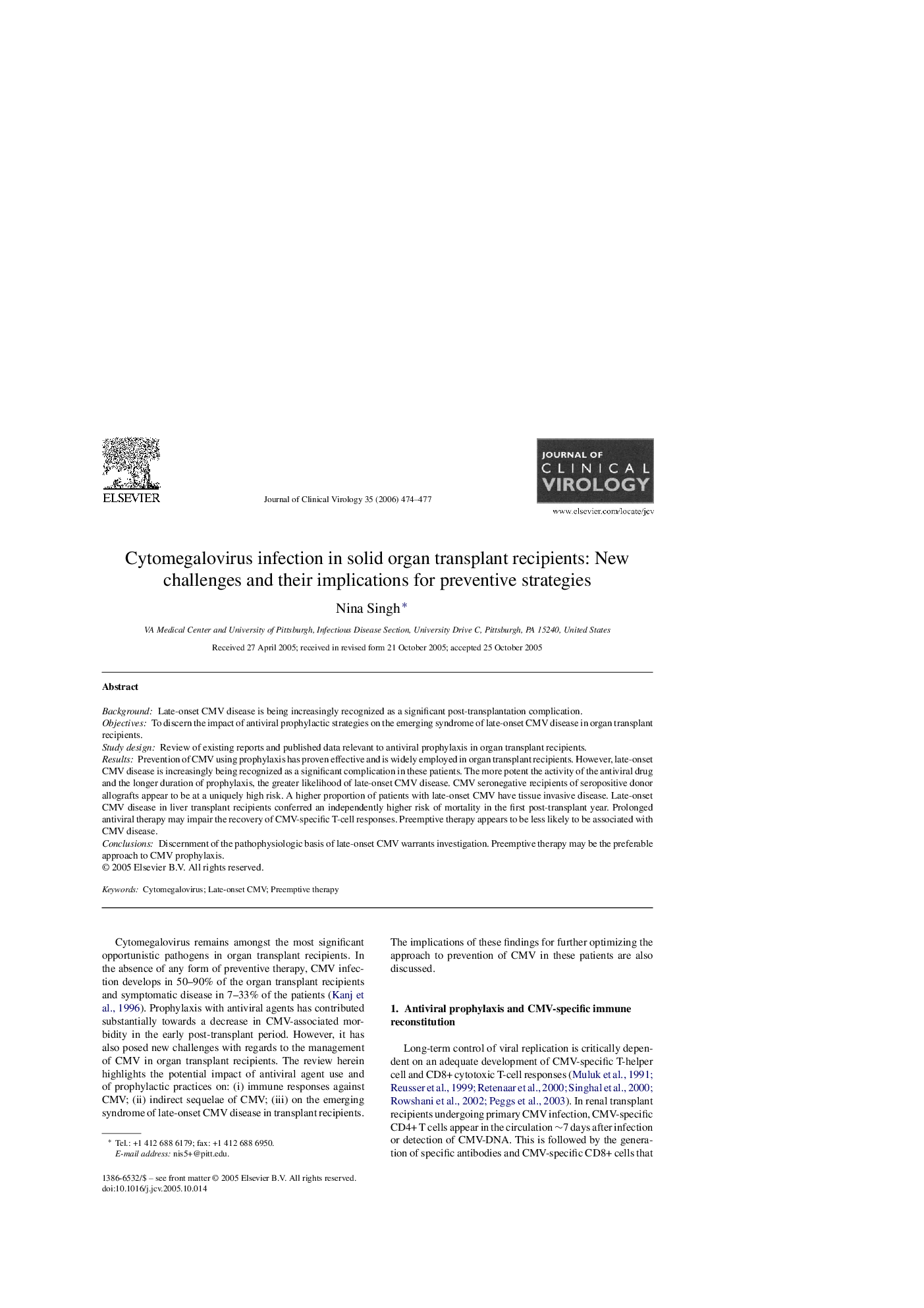| Article ID | Journal | Published Year | Pages | File Type |
|---|---|---|---|---|
| 3371298 | Journal of Clinical Virology | 2006 | 4 Pages |
BackgroundLate-onset CMV disease is being increasingly recognized as a significant post-transplantation complication.ObjectivesTo discern the impact of antiviral prophylactic strategies on the emerging syndrome of late-onset CMV disease in organ transplant recipients.Study designReview of existing reports and published data relevant to antiviral prophylaxis in organ transplant recipients.ResultsPrevention of CMV using prophylaxis has proven effective and is widely employed in organ transplant recipients. However, late-onset CMV disease is increasingly being recognized as a significant complication in these patients. The more potent the activity of the antiviral drug and the longer duration of prophylaxis, the greater likelihood of late-onset CMV disease. CMV seronegative recipients of seropositive donor allografts appear to be at a uniquely high risk. A higher proportion of patients with late-onset CMV have tissue invasive disease. Late-onset CMV disease in liver transplant recipients conferred an independently higher risk of mortality in the first post-transplant year. Prolonged antiviral therapy may impair the recovery of CMV-specific T-cell responses. Preemptive therapy appears to be less likely to be associated with CMV disease.ConclusionsDiscernment of the pathophysiologic basis of late-onset CMV warrants investigation. Preemptive therapy may be the preferable approach to CMV prophylaxis.
